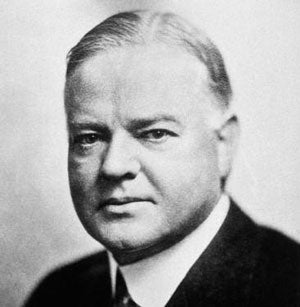
Your support helps us to tell the story
From reproductive rights to climate change to Big Tech, The Independent is on the ground when the story is developing. Whether it's investigating the financials of Elon Musk's pro-Trump PAC or producing our latest documentary, 'The A Word', which shines a light on the American women fighting for reproductive rights, we know how important it is to parse out the facts from the messaging.
At such a critical moment in US history, we need reporters on the ground. Your donation allows us to keep sending journalists to speak to both sides of the story.
The Independent is trusted by Americans across the entire political spectrum. And unlike many other quality news outlets, we choose not to lock Americans out of our reporting and analysis with paywalls. We believe quality journalism should be available to everyone, paid for by those who can afford it.
Your support makes all the difference.
A brilliant mining engineer and self-made millionaire from Iowa – the orphaned son of a Quaker blacksmith – Herbert Hoover made a name for himself during the First World War for his efficient humanitarian work evacuating US refugees and distributing food relief in Europe. Thereafter, he wrote: "I was on the slippery road of public life." He was US food administrator from 1917-1918, encouraging the nation to conserve food supplies, then served as economic adviser to Woodrow Wilson at the Versailles Peace Conference before becoming a very active secretary of commerce for both Warren Harding and Calvin Coolidge. His philosophy of "associationalism" – voluntary partnerships between government and business – could be seen as foreshadowing the public-private partnerships of today.
A clever and capable administrator, he took office at the worst possible time. The Wall Street bubble burst within eight months of his inauguration, and the economy crashed into what became known as the Great Depression. Hoover responded to the slump with more vigour than is sometimes suggested. He cut taxes and expanded public works spending, although he intended to keep the Federal budget balanced and considered welfare to be primarily a local and voluntary responsibility. As the crisis deepened, he presented to Congress a programme asking for the creation of a Reconstruction Finance Corporation to aid business; additional help for farmers facing mortgage foreclosures; banking reform; a loan to states for feeding the unemployed; and expansion of public works. His eventual successor, Franklin Roosevelt, attacked his "reckless and extravagant" spending.
But nothing Hoover did seemed to make any difference. Unemployment climbed to 25 per cent and, as millions fell into destitution, he, as president, was blamed. The shanty-towns in which the itinerant unemployed began to live were known as "Hoovervilles"; the newspapers under which the homeless slept were called "Hoover blankets". The hubristic words with which he had accepted the Republican nomination in 1928 – "We in America today are nearer to the final triumph over poverty than ever before in the history of any land" – came back to haunt him.
By 1932, the nation had plainly made Hoover a scapegoat for the Depression. An incident in Washington in May that year, when he let US troops use force against protesting veterans of the First World War, did further damage to his image. He was heckled, and sometimes physically attacked, during his election campaign. No one was surprised by his crushing defeat.
He remained on the fringes of public life, criticising Roosevelt's "New Deal" and toying with the idea of standing again for the presidency in 1936 and 1940. After the Second World War, he was involved in the distribution of aid to war-wrecked Germany, and in 1947 President Truman appointed him to what became known as the Hoover commission, with a brief to reorganise the executive departments. He was appointed chairman of a similar commission by President Eisenhower in 1953. He wrote many articles and books in his retirement. He died in 1964, at the age of 90.
In his own words
"True liberalism is found not in striving to spread bureaucracy but in striving to set bounds to it."
In others' words
"In many ways, he was superbly equipped for the presidency. If he had been President in 1921 or 1937 he might have ranked with the great presidents." John Nance Garner
"I have the feeling that he would rather see a good cause fail than succeed if he were not the head of it." Woodrow Wilson
Minutiae
In the White House, Mr and Mrs Hoover sometimes conversed in Chinese, in order to frustrate eavesdroppers.
He refused to accept a salary for the his term in the presidency.
He would exercise every morning by playing a special game of his own invention, now known as Hooverball, which involves playing a kind of volleyball with a heavy medicine ball.
He was born around the stroke of midnight, so there was confusion within his family as to whether his birthday was on 10 or 11 August.
Although he publicly supported Prohibition, he was fond of martinis. As commerce secretary, he used to stop off at the Belgian Embassy – which was technically foreign soil – for a drink on the way home.
Join our commenting forum
Join thought-provoking conversations, follow other Independent readers and see their replies
Comments